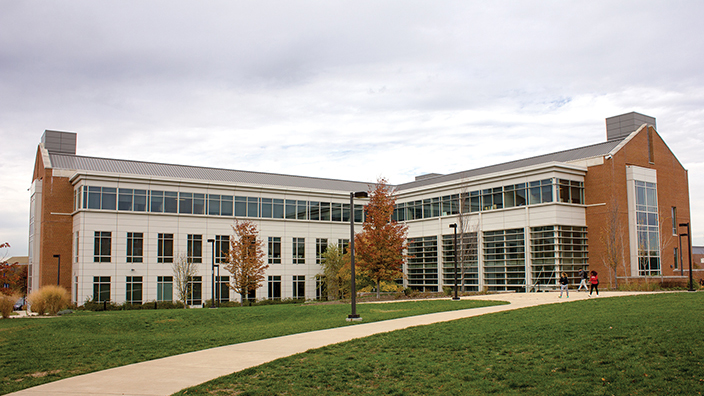The University of Maryland’s journalism major is no longer a Limited Enrollment Program — a status that had capped enrollment and led to more competitive admissions criteria in the major.
Without the LEP status, students can transfer into the program without taking certain courses or receiving certain grades beforehand, said Lucy Dalglish, dean of the journalism college. It makes the program more “inclusive,” she added.
The change came after the university identified an increase in the college’s enrollment capacity — which is calculated based on the number of faculty and number of students — over the past five years, said undergraduate studies dean William Cohen.
Dalglish said an increase in the college faculty through grant funding has allowed the program to expand to more students.
This university uses LEP status as a last resort for colleges that can’t handle the demand for their programs, Cohen explained. But the journalism college is equipped to meet its demand, Cohen said.
The journalism college also moved to Knight Hall in 2010, which allowed the program to increase capacity, Dalglish said. Before the move, the program held classes in Chincoteague Hall. This limited space and a previous need to supply students’ computers led to the college gaining LEP status, Dalglish added.
[UMD sees lowest admissions rate in over a decade for 2020-2021 cycle]
Today, the college can admit roughly 140 students in each freshman class, Dalglish said, but keeps its admittance smaller to maintain its journalism school accreditation.
In the last five years, the college freshman class sizes have ranged from 80 to 120 students. The current freshman class of 78 students is the lowest since 1992, according to this university’s institutional research, planning and assessment office.
Some journalism students say the change could hinder the prestige of the college, but university officials say the change is part of an effort to limit the number of LEPs at this university and could allow for more inclusivity.
“The position of the university on limited enrollment programs is that we want there to be as few as possible,” Cohen said. “If there is any ability to not start one, or to remove one that is already in place, that is our goal.”
Freshman journalism major Ava Thompson is worried the LEP status change could limit students’ connections with their classmates.
“A reason why I chose the school is because of the community it seems like it has, because of the low amount of people,” Thompson said.
Some other journalism majors, including freshman Sasha Allen, consider the college’s LEP status a mark of its prestige as a top journalism school in the nation.
[For transfer students, housing problems amplify stressful transition to UMD]
“[The status change] just changed a little bit how I think about [the program] because it’s not as exclusive,” Allen said. “It does bring down the prestige a bit, in terms of the qualifications that you need to enter the program initially.”
Cohen said the college rarely uses its LEP status to deny a student admission.
LEP status also meant any student who wanted to switch their major to journalism or a transfer student who wanted to major in journalism had to take three journalism gateway courses before being accepted into the program.
Dalglish believes this feature of LEP programs has held the college back from welcoming new students.
“We’re all about inclusivity right now,” Dalglish said. “There are many different ways to be inclusive, and I think making people feel that they’re part of the college as soon as possible is an important part of that.”
Allen agreed the college should remove barriers to journalism education. For her, LEP status guaranteed other students would be as passionate about journalism as she is.
“It is good that it will open it up to other people who would not have that experience, but then it also opens up to people who aren’t sure what they want to do,” Allen said.
Junior journalism major Michael Rovetto is one of 16 students who transferred into the college this fall. After a “worrisome” placement into letters and sciences after first applying to this university from his community college, he experienced a “sigh of relief” when he moved into the journalism program less than two months before the semester began.
Rovetto hopes the college’s change in LEP status will help “open up” the program.
“Not having those barriers, I think you’ll see a lot of people more interested in getting out there, and even doing better,” Rovetto said.



